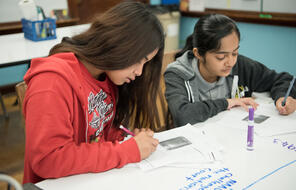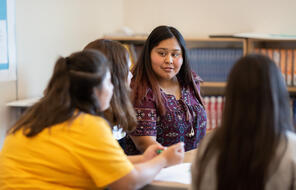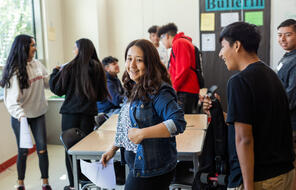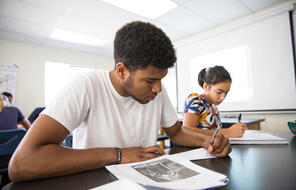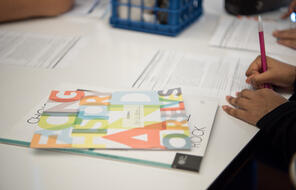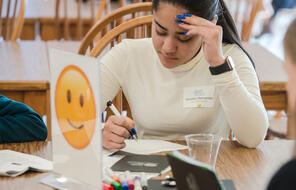How Assimilation Changed My Identification with My Culture
At a Glance
Subject
- English & Language Arts
- Culture & Identity
How Assimilation Changed My Identification with My Culture
By Tiara McKinney
In my last year of middle school, I found out that I would be attending a boarding school in New Jersey. My hard work, long hours spent studying, and stress and anxiety would pay off - but I had no idea what to expect at my new school. I had never visited New Jersey before and the only communities I knew were in my home country, The Bahamas.
I only knew my small island community where I went to school with many of my peers. I shopped at the same supermarket as most of them, and my parents and their parents worked together or knew each other. New Jersey is vastly different and I still have not fully adjusted. How do you ever fully cope with being away from home?
The first day of my freshman year came and I drove about five minutes from a borrowed apartment to the school at which I would be spending the rest of my high school years. My mother spoke calming words while I dragged suitcases and bins from our rented van to the room where I would live. The room was empty and bare with its menacing green carpets and cream-colored walls that reminded me of nothing of home. I shrugged my way down the hallways of the red brick wall buildings to and from orientation meetings while other students strutted down the hallways as if they were runways. They were so sure of themselves… and they had whole family legacies at the school. I knew no one and I had no legacy. I felt out of place.
That first year, I rushed to learn everything about living in the United States and living closely with other people who looked nothing like me and who came from a variety of backgrounds. I changed how I spoke and what I said. I felt it would be best if I didn’t have an accent, so I tried to speak like the others around me. I unlearned how to be polite and how to greet people, how to smile to others and say good day. I learned how to just ignore people if we were in public. I unlearned my habit of calling elders ma’ams or sirs. I did not realize what my learning of and adaptation to this new culture also came with the unlearning and erasure of the social customs and traditions that were representative of where I came from - of my culture and upbringing.
When breaks came I traveled home - but when I went home it felt different. I walked off of flights of cold, stale air into the fresh sea breeze that reminded me that I was home. I indulged in everything that I thought came with being a Bahamian: I went to the beach more often, I ate more pastries and food that I had previously taken for granted, and I visited family and friends whom I missed when I was gone.
However… I felt like a fraud.
I had learned everything about New Jersey culture and I could no longer appear authentic when I returned home. I was mocked for my Bahamian accent - or rather, my lack thereof. In all of the stores that I shopped at, family and friends always thought it ok to stop me, my sister or my mother and asked what happened.
“She sounds so ‘American’ now,” they observed and at times taunted.
It seemed I could no longer be one of them.
I felt stuck in between two places, two people, and two cultures. To the students at my school, I was still not one of them and everything that I had tried to learn on the outside was a coverup for my background - about which I would never talk to them. To those in The Bahamas and more specifically my small island community, I could not relate to them either. I was a fake, someone who had not chosen to remember her roots and someone who had chosen to assimilate.
In my rush to learn what I thought I had to in order to fit in abroad, I risked feeling left out at home. 1
- 1Tiara McKinney “How Assimilation Changed My Identification with My Culture,” in Black Girl, White School: Thriving, Surviving and No, You Can't Touch My Hair. an Anthology, ed. Olivia V.G. Clarke (LifeSlice Media, 2020), 5-7.

